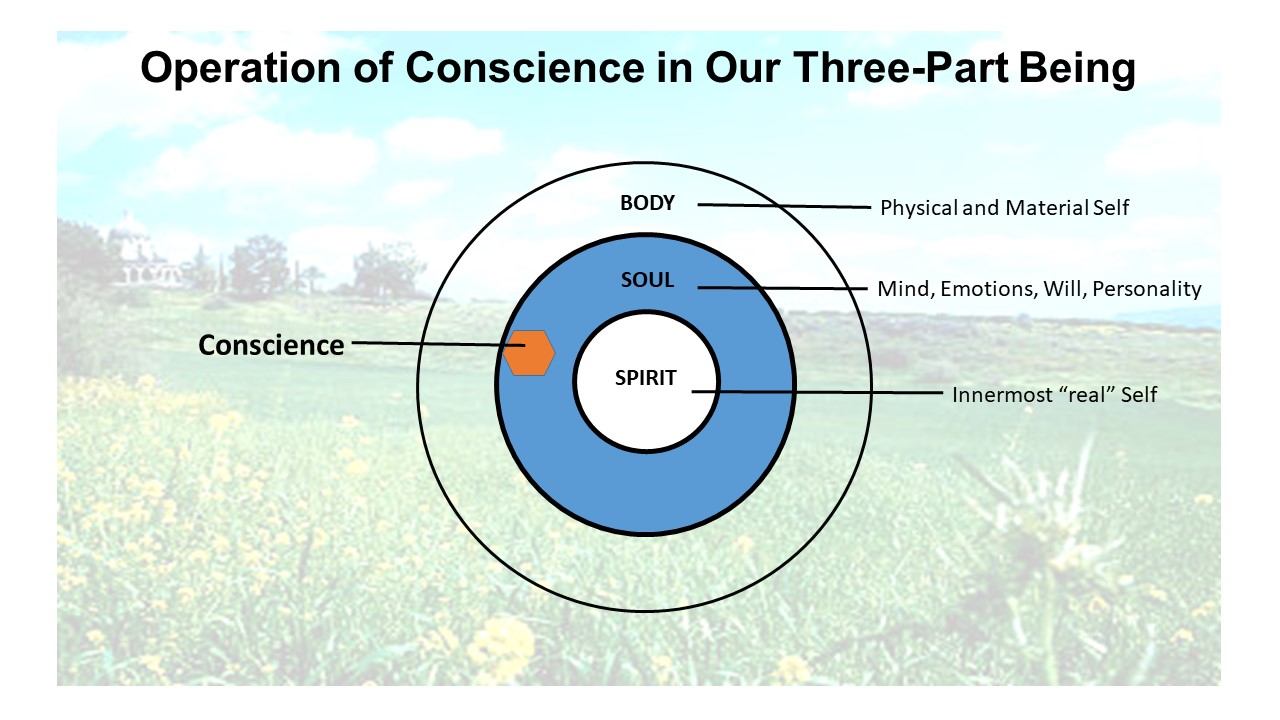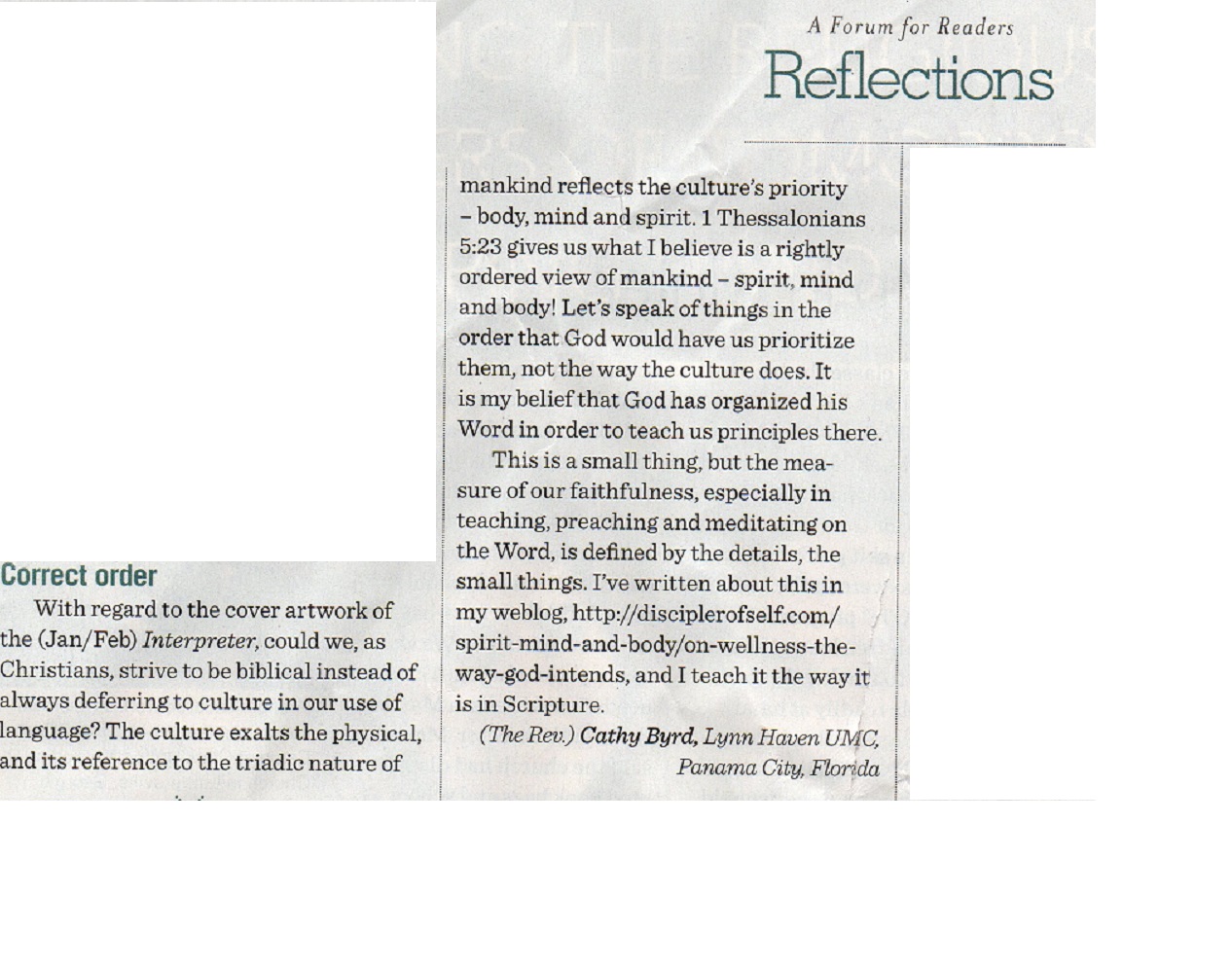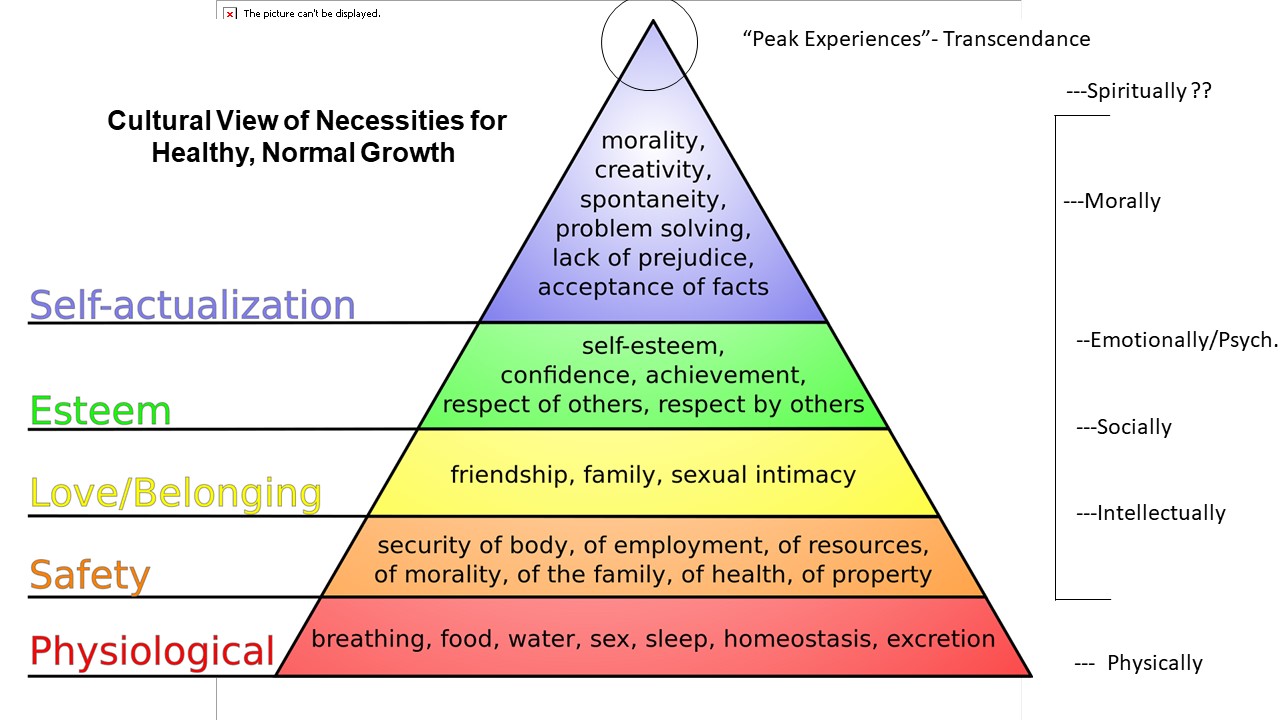The World’s Way Is Not The Way – Why Mindfulness Is Not Our Approach
What is Mindfulness?
Mindfulness” is a popular technique being used in therapeutic circles to address emotional and mental health issues these days. Increasingly, we are being asked to be more “mindful” in order to manage our thought lives. It is a meditative practice.
“Mindfulness meditation is a mental training practice that teaches you to slow down racing thoughts, let go of negativity, and calm both your mind and body. Mindfulness techniques can vary, but in general, mindfulness meditation involves a breathing practice, mental imagery, awareness of body and mind, and muscle and body relaxation. Practicing mindfulness meditation doesn’t require props or preparation (no need for candles, essential oils, or mantras, unless you enjoy them). To get started, all you need is a comfortable place to sit, three to five minutes of free time, and a judgment-free mindset.” (https://www.verywellmind.com/mindfulness-meditation-88369)
This is, apparently, the kind of meditative practice used in Buddhism, Christian Science practice, New Ageism, and many other religious and psychological practices that seek to bring about control of the physical, emotional, and volitional self through exercise of the mental capacities of one’s human abilities. It is one secular, though somewhat spiritualized version, of cognitive behavioral therapy. It is, however, still primarily at the level of self-control through the use of one’s mind. This is not what we do at Titus 2.
We do encourage use of some physically soothing methodologies that many practitioners of mindfulness use, such as deep breathing, relaxing stretching, use of pleasant aromas or soothing oils, or other “self-care” activities that an individual may enjoy. Our physical senses are a gift from God and we may enjoy using them in healthy ways. These practices, however, used as a means of attaining a state of mind as the end-goal, can carry with them some risks.
When someone recommended a book entitled “Untethered Soul” by Michael Singer, I was finally able to put my finger on the source of my discomfort with the mindfulness movement and articulate for our mental health friends in the secular realm how our work in faith-based life recovery at Titus 2 is different and why.
How Is Our Approach Different?
Our approach to life recovery and holistic well being begins in how we think of ourselves and God. A.W. Tozer said: “What comes into our minds when we think about God is the most important thing about us.” Similarly, a pastor friend many years ago told me, “We give as much of ourselves as we can understand to as much of God as we can understand.”
This is the beginning of understanding oneself- the 3-part aspect of the human self- spirit, soul, and body- from the inside out.

1 Thessalonians 5:23- “Now may the God of peace Himself sanctify you entirely; and may your spirit and soul and body be preserved complete, without blame at the coming of our Lord Jesus Christ.”
This is the Christian view, i.e. biblical perspective, of how God has created us and ordered our lives, beginning with the spirit, in his image. We are first and foremost, spiritual beings in the image of God.
Genesis 1:26.31 “Let Us make man in Our image, according to Our likeness; and let them rule over the fish of the sea and over the birds of the [ak]sky and over the cattle and over all the earth, and over every creeping thing that creeps on the earth.” 27 God created man in His own image, in the image of God He created him; male and female He created them. 28 God blessed them; and God said to them, “Be fruitful and multiply, and fill the earth, and subdue it; and rule over the fish of the sea and over the birds of the [al]sky and over every living thing that [am]moves on the earth.” 29 Then God said, “Behold, I have given you every plant yielding seed that is on the [an]surface of all the earth, and every tree [ao]which has fruit yielding seed; it shall be food for you; 30 and to every beast of the earth and to every bird of the [ap]sky and to every thing that [aq]moves on the earth [ar]which has life, I have given every green plant for food”; and it was so. 31 God saw all that He had made, and behold, it was very good. And there was evening and there was morning, the sixth day.”
In the first account of the creation of humankind, God tells us a few basic important things about humanity. We are created:
– In his image
– To have dominion over the earth
– Male and female
– Blessed
– To be fruitful and multiply and fill the earth and subdue it
– As part of a creation God called “very good”
This was ALL BEFORE THE FALL. There was no curse on anyone or anything. There was no distinguishing between the value or role of men and women. There was order and God was over all and humanity was under authority of God and was blessed to be steward over all created on earth. Sin would cause humankind to miss the mark and have a lot of unintended consequences, none of which, however, were beyond the redemptive power of Almighty God.
God created each of us with a human spirit modeled after God’s own and capable of interaction with the Holy Spirit of the God of the Universe. Additionally, each of us possesses a uniquely imprinted soul that consists of mind, emotions, will, and personality. We are “persons” just as God, too, is a “Person” with unique, albeit far greater, capabilities than humans – like omnipotence, omnipresence, and omniscience among others. Our soul-capabilities give rise to the mechanism we call our “consciousness”, as well as our ethical/moral capacity, the “conscience.” The spirit and soul are eternal, they will exist beyond physical death, and even though they are created for eternal life they, too, are fragile and can be felt in the physical realm to be diminished “as unto death” – spiritually or psychologically, just as the body can experience death physically. In effect, one can experience being “dead” in three ways- spiritually (feeling disconnected from God), psychologically (feeling profoundly distressed or disconnected from one’s own self/soul), or physically (ultimately, disconnected from one’s body). For maximum “wholeness” and well-being, we need all 3 aspects of our “self” to be in harmony with one another, a feeling of integration and peace.
How are Cultural Priorities Different From God’s Priorities?
Sadly, the cultural emphasis is generally on the physical. In fact, most of the time, when referenced in the culture around us, even in religious contexts, the reference to the tripart nature of humankind is framed as “Body, Mind, and Spirit” or “Body, Soul, and Spirit.” Even the church has failed to grasp the subtlety of this point in modern times even though God is very clear about his priority in his Word.
The United Methodist Church’s Interpreter magazine featured this topic and exemplified my point. I wrote a letter to the editor about that issue and its cover. This example points to the reason why The UMC’s cultural and politically-focused emphasis has made it spiritually and biblically irrelevant for modern day evangelicals like myself.


\
\
When I first began exploring this issue in the late 1990’s, I researched the phrase “Body, Mind, Spirit” and “Body, Soul, Spirit” online and found tens of thousands of references. When I reversed the order, “Spirit, Mind, and Body” or “Spirit, Soul, and Body”, I found only one reference, a Time magazine article about the YMCA. Its logo at the time and the article that follows gives some insight into why:

Monday, Aug. 22, 1955
Religion: Spirit, Mind & Body
During World War II, a captured Japanese officer thoughtfully examined a football that the Y.M.C.A. had just given his P.W. camp as a gift from his enemies. Later, he approached the Rev. Fredrik Franklin, a Swedish Y.M.C.A. missionary in the Far East. “Mr. Franklin,” he said, holding up the football, “is this Christianity?” Said Franklin: “Yes, sir, I believe it is.”
Last week 10,000 delegates gathered in Paris to mark the 100th anniversary of the World’s Alliance of Young Men’s Christian Associations. As Delegate Franklin told his story, the football seemed an appropriate symbol of the Y.M.C.A.’s rugged, straightforward and successful type of Christianity.
“We raise our kids in bamboo huts and city flats,” Franklin told the delegates from 70 countries. “We are high church and low church, orthodox and unorthodox . . . We are colored and colorless, Africans and Scandinavians . . . We speak a hundred languages.”
Young & Gay. The activities of the Y.M.C.A. movement are almost as diverse as its 4,242,819 world members. It employs 5,704 full-time professional secretaries (the term for Y.M.C.A. local administrative officers), operates 8,360 headquarters buildings, 247 armed services centers, 186 industrial workers’ centers, 89 refugee camp associations, 252 holiday hostels, 72 summer camps, and scores of schools and colleges. In almost every corner of the world people are familiar with its escutcheon, a red triangle whose sides symbolize the association’s three concerns: spirit, mind and body.
To some, spirit seems to be the least of the three. A lot of people see the “Y” only as a chain of economical young men’s hotels, a place of gymnasia, swimming pools and evening classes. Yet the Y.M.C.A.’s aim was set down clearly a hundred years ago in a statement called the “Paris Basis”: “To unite those young men who, regarding Jesus Christ as their Lord and Saviour . . . desire to be His disciples . . . and to associate their efforts for the extension of His Kingdom among young men.”
The Y.M.C.A. was founded in London on June 6, 1844 by a committee led by two young dry-goods clerks, George Williams and Edward Beaumont. From the first it was a religious movement of laymen, in spirit ecumenical, evangelical and often puritanical. Aimed at young workers who had become indifferent to religion in the turmoil of the Industrial Revolution, the Y.M.C.A. had no formal religious creed, urged its members only “to exert a Christian influence in the sphere of their daily calling.”
Within a decade the idea had spread through England to the Continent, and to Canada and the U.S. The budding associations soon began branching into education. In 1855 the first World Conference convened in Paris. To all established Y.M.C.A.s went a letter describing the kind of delegate that the conference expected: “We also want them to be young and gay in order to demonstrate that the Y.M.C.A. is not an empty name, that we are not tiresome and boring young men . . . but that by God’s grace it is our Christian faith that makes us young and happy.”
Flexible & Friendly. Over the century the Y.M.C.A. multiplied more than a hundredfold. It lost much of its early puritanism, expanded its services in every direction. A herald of the physical gospel, it celebrated its liturgy in the gymnasium, introduced sports into dozens of lands (basketball and volleyball are Y.M.C.A. inventions). Working with youngsters, teen-agers and adults, it taught everything from swimming and driving to painting and how to prepare for marriage.
Because the Y.M.C.A. never attempts to proselytize for a particular sect, it has attracted not only all denominations of Christians but non-Christians as well. Almost 90% of India’s 30,000 members are Hindus. In Japan and Ceylon many members are Buddhists. Even Moslems have joined the Y. The Vatican, suspicious of the Y.M.C.A.’s deep Protestant roots, has warned Roman Catholics against joining. Despite this, some 25% of the Y.M.C.A.’s 2,230,000 U.S. members and about 95% of Philippine and South American members are Catholics.
The Y.M.C.A.’s flexibility and good will have made it welcome in most countries, but it has also been proscribed in some. Spain’s Y.M.C.A. has been closed since the Civil War, and the Y in the U.S.S.R. and most of her satellites has been scuttled. Red China, however, has permitted it to continue operating.
Overseer of the Y.M.C.A.’s worldwide work is its general secretary, Pennsylvania-born Dr. Paul M. Limbert, 57, a minister of the Evangelical and Reformed Church, who lives at the Y.M.C.A. World’s Committee headquarters in Geneva. A onetime education and religion teacher at Columbia University Teachers College, he is the third American in succession to hold the post. In Paris, at the start of a fortnight’s conferences, discussion groups and campfire meetings, Dr. Limbert heard the Y.M.C.A.’s growth and prosperity proclaimed in four languages (with the help of a 6,000-earphone translating system).
But, by its own standards, the Y.M.C.A. is measured not merely by its material growth, its prosperity or its technical proficiency. What counts is the propagation of Christianity in every area of life. That, in the eyes of its leaders, is the great challenge for the Y.M.C.A.’s second century. Says the report from the Y.M.C.A. World’s Committee to the Paris conference: “Have we sufficient faith in God and the power of His word to let Him use us wholly for His purposes and not our own? Are we willing to be first His children, taught by Him, then His disciples, and finally His fellow workmen in the extension of His Kingdom? . . . We do not know; we hope and pray that this will happen.”
Click to PrintFind this article at:
http://www.time.com/time/magazine/article/0,9171,807563,00.html
This proper alignment, I believe, was what God had in mind when He created us with His image, first as spiritual beings, that we would live out of our spiritual selves first and foremost and be connected to Him. Then, with soul selves (mind, emotions, will, personality) to have distinctive personhood and freewill, to engage freely and out of our own choosing, not out of fear, obligation, or duty with a being so far above and beyond our understanding. And lastly, having unique physical selves (varieties of body types, two genders, various physical features, varying degrees of athleticism, diverse tongues and cultures, etc) as the least important thing about us. And God called it ALL VERY GOOD!
Man has corrupted God’s very good creation by putting his own emphasis on the wrong things.
1 Samuel 16:7 “The Lord said to Samuel, “Do not look on his appearance or on the height of his stature, because I have rejected him. For the Lord sees not as man sees: man looks on the outward appearance, but the Lord looks on the heart.”
The world prioritizes our personhood and everything about it through the lens of the physical – our own and that of the world and one another and how we relate to it all. How we look, what we wear, how we talk, where we live, what we drive, what we eat, what size we are, how tall we are, skin color, hair color/texture, bling, bank account, style, and on and on. That is its One Way- from the outside in.
How Does Science View This? And Is Science At Odds With Faith?
Science takes a more thoughtful and investigative approach than the world at large and considers the interior functions of the body and the mechanics of the soul – mind, emotions, volitional will, personality, conscience- and how they affect the outer body working as it “should”. Science and faith are not at odds with one another. They are two sides of the same coin. What is the motivation for human behavior? Is it all from within oneself or does it arise from outside ourselves? Are we here all alone or does God participate with us? How do we operate? Within ourselves and in relationship to others?
But God reveals that both the outside body working well and the interior of it as well as the mechanics of the soul functioning “normally” are all first and foremost to be under the authority and cooperative work of our human spirit in conjunction with God’s Divine Holy Spirit by the regeneration of our spirit through faith that has to come FIRST.
Romans 12:3 “ For I say, through the grace that was given me, to everyone among you, not to think of himself more highly than he ought to think; but to think reasonably, as God has apportioned to each person a measure of faith.”
Faith is not the issue. Every person has faith, or at the very least the capacity to have faith, to believe in SOMETHING….What makes the difference is the object of one’s faith. For Christians, the object of our faith is the divine incarnate nature of Jesus Christ, our Lord and Savior
My Christian tradition and everything I have studied and learned about the human condition confirms that it is through faith in Jesus Christ, Savior and the Incarnate God who will guide us into that process of regeneration through the spirit. He is furthermore redeeming the entire creation by His Spirit. He is, in fact, doing that now. It has been His plan since He first conceived the creation of this world in His vast creative, all powerful mind, and has continued it through the eons of time as He has brought all things to each creative and redemptive moment of revelation. As our world and our systems and our minds develop and we are able to grasp the scope of His plan, He continues to unfold it before us.
This physical realm that we can see and even the parts of it that are still hidden from our eyes, are all simply a mirror image of a much larger and more wondrous and beautiful spiritual realm in which God and all spiritual beings move. We, as a general rule, cannot see or fully sense their presence. But increasingly, God has been preparing us for his full and permanent revelation of that realm and its emergence into this realm with us. Some of us know it and have sensitivity to its presence already and are happily anticipating that day. Others are anxious, yet earnestly desiring it. Others are vaguely aware that something is missing from this life, leaving it feeling less purposeful and abundant than it could be. Still others are content with this life as it is. Others are greedy and desire to hoard and control things of this life, unaware that something greater even exists. Others are fearful that what is here might be snatched away from us in an instant.
The natural world and all it contains expresses the creativity, majesty, order, beauty, and at times even the humor and whimsy of a loving, relational God but it is not God. All of nature is a means of grace designed to open our eyes to His Presence with us. It is “general revelation” that is evident for all people with the eyes to see, and it testifies to the glory of God. Those who are worshipping the natural world or trying to use it for their own gain or who are terrified that it is slipping away and will be lost to us simply do not know the truth of the God who is in charge of all of it.
We are tethered for all eternity to the God who created it. He is Present, He is Sovereign, He is Good, He is Personally invested in being in relationship with each one of us and He has come to us in the Person of Jesus Christ, and His Holy Spirit is active in the world today. He has told us that He will redeem this world and all that is in it.
Spirit-Fulness Is About Relationship with God.
For Christians, relationship with the Divine God is through the Lord and Savior Jesus Christ, whose Holy Spirit is with us. We can have this relationship with the Divine God who came to us on Earth as the Incarnate God, making Himself a man in order that He might identify with His poor, traumatized human created beings and lead them into a state of salvation, transcendence, and peace even in the midst of suffering in a physical realm world, where freewill and the presence of evil can make life otherwise unfathomable. This condition within the physical realm will not always be. It is not what was intended to be and it is not going to be this way forever. God has a plan and it is being worked out even this very minute.
Psalm 19:1-3 “The heavens declare the glory of God; and the firmament shows his handiwork. Day unto day utters speech, and night unto night reveals knowledge. There is no speech nor language where their voice is not heard.
Romans 1:20 “For since the creation of the world his invisible attributes are clearly seen, being understood by the things that are made, even his eternal power and Godhead, so that they are without excuse.” Connection with the Divine God is enjoyed in nature but it is simply a means, not the end. Connection with the Divine God is also not in religious practices. Those can provide structure that can help discipline one to the habit of making time to listen and learning how to still busy physical bodies and noisy, anxious souls to be aware of God’s Spirit present with us. But religious practices are not God, they are also simply a means of grace that can help us connect with God. In religious practices like baptism, Holy Communion, confirmation, marriage, ordination, worship, liturgies, hymns, etc. we find sacredness, order, comfort, fellowship, joy, celebration, peace, and an intimate sense of God’s participation in life in community with us.
Additionally, our sacred texts, our canon, His Word, our Holy Bible gives us a touchstone to sustain us and through which God provides guidance to our lives, individually and in community. It is a point of reference that, if used properly, will bring us together. We do not hold the paper and ink itself as icons of worship as some religions do their own sacred texts. But the words of God, preserved for us through the ages- its wisdom, warnings, principles, proclamations, prohibitions, and promises- treasured in our hearts and taught to our children- provide the means by which our minds are transformed, and our emotions and wills are conformed to those of God by the working of his Holy Spirit within us. This is The Way taught by Jesus Christ in The Beatitudes and his Sermon on the Mount, the themes of which are repeated over and over again throughout the New Testament and arose from and are evidenced in the lives of the patriarchs, kings, prophets, and families of the Old Testament. God has a plan. He conceived it, produced it, gave us the script. He has played out the drama for us to see from the beginning and is continuing the epic of Eden before our eyes. He can do this forever and, in fact, intends to do so. But it will change for humankind. It has changed at key points along the way already. At some point God will step onto the scene again, and everything is going to get a fresh, new beginning. Some expect it to look like a fearsome, devastating apocalyptic nuclear war. I expect a loving revelation of a new, clear understanding of who God really is and what His expectation of humankind is. I expect a change that occurs while no one is watching and, in fact, don’t see that it has already happened. It will be like Jesus sidling up alongside the two disciples on the road to Emmaus after His resurrection. They didn’t recognize him, even as they walked together and talked during that seven mile journey. They invited him in and continued their discussion over a meal. Only in the breaking of the bread…. And quite possibly in Jesus’ blessing of that bread…. were their eyes “opened” and they saw him for who he truly was… The Risen Lord!
What About Other Religious Views?
So, how do non-Christians say that change and peace for the world will be accomplished? Some of the Humanist, Buddhist, New Age, Universalist, One World, Mindfulness proponents say that it will be done by force of human will through “mindfulness” as calm, non-anxious and non-judgmental minds are able to reason their way through conflict. Of course, only the most educated, elite, well-informed and well-connected in the world will be able to bring that about. Such a state of being arises out of the physical and soul realm power, they suggest, and is predicated on the skill, ability, education, and opinion of the humans involved in the process. That is the way of the world. And it is where we are today. It is what has brought the world nearly to its knees at the mercy of COVID-19. And will continue to put us at risk of future such pandemics and other intentional and unintentional consequences of the reasoning of men.
Biblical Christians come at it from a biblical model of “spirit-fulness” as the priority. Such a posture as that requires an entirely different set of skills, abilities, education, and opinions and is far less about the humans involved and is entirely about God’s involvement. God is Present, Sovereign, Good, and cares deeply for each and every person.No soul should be untethered from its spirit. And no human spirit should be untethered from the Spirit of the Divine God. And as long as we are in this physical realm, we are bound to our human bodies. If God finds it necessary to separate us from our human bodies to usher us into the spiritual realm in order to be present to us in the spiritual realm, those of us who already know about that realm wilI have no fear in turning loose here of the physical. It is only those who fear turning loose of the physical realm or who are controlled by others through their fear of death who will be affected. That is what COVID-19 has clearly shown. God’s hand is all over this pandemic. How many more will it take for us to understand? Each pandemic will get worse, until the world relents and lets God’s people go free. Free to be who they are. His. Without censoring. Without slavery. Free to worship. Free to engage with Him and His created world as He intended. He is in charge and those He puts in leadership are in charge. Lies and abuses and hatred or neglect of God and God’s people must end.
To be an untethered soul is to be a spiritual and psychological orphan, abandoned in the world. That is the condition in which too many people currently live. They live in fear of first one thing or another. They simply don’t know how to live with any degree of peace and comfort. God does not do that to his children. Some may be snatched from or even taken there by parents who are careless or ignorant and do not teach their children about God, but God is always and ever present and reaching out to them and has a plan to redeem each and every one of them. God has no grandchildren. Each individual is a creation of God for whom God assumes the responsibility for seeking, regardless of the family or culture into which the individual is born. God will assure that the individual has the opportunity to know Him through His natural created realm, through the gospel-proclaiming ministries and prayers of His people, through His own Spirit, or by whatever means God chooses. It will always ultimately include knowledge of and acceptance of Jesus Christ, the Incarnate God.
God’s Redemptive Plan Has Been Unfolding Since The Beginning.
From the beginning God had a plan for the people of His creation. He made a covenant with Adam and Eve in the garden. He has renewed it time and time again through the ages and generations- with Noah, with Abraham, with Jacob, with David, through Jesus and the New Covenant with all the people of all nations, in movements throughout history like those of Martin Luther, John Wesley, YMCA, Azusa Street revival, Billy Graham, Promise Keepers, Women of Faith, and on and on and on….. too many to enumerate. There will always be a remnant of true believers in a world that continues to dismiss belief in Jesus Christ and pursue its own way. God is dealing with the world. Many are suffering. Many will suffer. But that is not God’s plan. That is the consequence of an unrepentant world that plays upon or gives in to fear, greed, and the desires of the flesh.
Human mindfulness will not lead us out of it. Physical strength will not lead us out of it. Spirit-fulness is the only way out. Jesus said, “I am The Way, The Truth and the Life.” The Holy Spirit, Jesus’ Spirit, is the Spirit of Truth. That is The Way.
How Did We Get To This Current Time and Place?
As the ways of the enlightenment and man’s confidence in his own reason rose, God began to be relegated to myth and superstition. That move of history led us here.
In Western culture after the Industrial Age and WWII Abraham Maslow’s model of self-actualization essentially tied it all up in a neat bow, with the secularization of western society and eliminating the spiritual element, taking God out of schools, government and the public square effectively lopping Maslow’s “peak transcendent experiences” off the hierarchy, the perfect means of having government take over meeting all the needs that any person had in order to grow into a fully self-actualized human being had been identified and now could be accomplished. However, it didn’t quite work that way over the last 70 or so years…..
In Luke 2:52, God had already defined the means of developing into a fully integrated, “whole” human being and gave us the example of how to do that in Jesus Christ. “And Jesus grew in wisdom and in stature and in favor with God and favor with man.”
But Abraham Maslow’s hierarchy became the standard for understanding human development and setting institutional policies to support healthy populations. As with most attempts as scientific human development models, to avoid the messy complication of having to weigh in on and risk trampling on diverse religious beliefs, institutions lopped off the top of Maslow’s theory….. “peak transcendent experiences,” i.e. spiritual experiences, as being unnecessary to achieving the fullest measure of human self-actualization.
Notice the six ways noted below that the Bible says are the ways that humans grow (in the same ways that Jesus grew!) and how they correlate with Maslow’s hierarchy when one restores Maslow’s observation about the significance of spiritual experiences.
“Jesus grew in wisdom & stature, & in favor with God & man.” Luke 2:52
Intellectually + Emotionally/Psychologically = “In wisdom”
Physically + Morally = “In stature”
Spiritually = “In favor with God”
Socially = “In favor with man”
Some might say, “Isn’t morally the same as spiritually?” No, it isn’t. Morality is predicated on shared values and understanding within culture/ community of “right” and “wrong”. One can be “moral” according to those shared values without knowledge of or a relationship with the Divine. Spiritually entails pursuit of a higher standard…. the virtues and attributes of the Divine and an intimate relationship with the Divine.
Christian spirituality exalts the virtues observed in the life of Jesus Christ and embraces the Holy Spirit’s indwelling to aid in living into those virtues personally.
Merging The Cultural View of Human Development and The Bible’s
Comparison of the cultural view of human development and the biblical view, as exemplified in the life of Jesus.

At Titus 2 Partnership, Inc. we use a variety of psycho-educational tools, cognitive behavioral strategies, and life skill development activities along with practical biblical knowledge and applications to help individuals understand themselves and understand God better. There is nothing particularly difficult about what we do. In fact, it’s rather simple. That, however, does not suggest that it is easy. Letting go of old ways of thinking, feeling, and behaving can be very difficult.
I tell our new students the story that Jesus told in a parable of the man who had an evil spirit cast out. It wandered in the wilderness, then returned and found the man’s soul empty and swept clean. The evil spirit went and gathered seven more spirits more evil than himself and they all reentered the man and he was worse off than before. Jesus’ story ends there. What is the point of the story?
Something is going to fill a vacuum. Nature abhors a vacuum whether it is physical or spiritual. We can work as hard and long as we like at disciplining ourselves and separating ourselves from the “people, places, and things” that are problematic in our lives or that trigger our pain and unproductive behaviors. But our souls will not remain “empty and swept clean” for long. Something will fill that space, that yearning, that void, that emptiness in our soul. Unless we replace what is removed with things more valuable, more worthwhile, more worthy, more lasting, more precious and productive, we will lapse back into the “people, places, and things” of the past, only worse. Such is the nature of addiction. And ultimately that is the trouble with the human condition…..it is fraught with the paradoxical capacity for both good and evil, as the Apostle Paul put it:
Romans 7:19 “For the good that I would, I do not; but the evil that I would not, that I do.”
The human condition leaves all of us with an addiction to sin, to selfishness, to instant gratification, and to a self-interest based ethic. If we could fix ourselves, humanity would long ago have achieved its own heaven. But we can’t and we don’t and we never will. Only by faith in Christ’s redeeming work of salvation and obedience to God’s will can heaven be brought to earth. If we do not believe, we will not see it. Not in this life nor in the next eternal one.
(This is the first part of the philosophical and theological basis of our work at Titus 2. The next communication will deal with more specifics of how we teach and nurture one into the relationships with God and others in community.) 5/21/20
![MPj04389070000[1]_phixr](http://disciplerofself.com/wp-content/uploads/2015/03/MPj043890700001_phixr.png)
